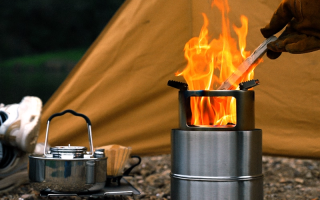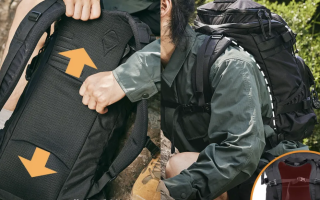Lighter Packs, Longer Journeys
‘Base weight’ refers to the combined weight of all items in your pack excluding consumables (food, water, fuel). Reducing your base weight from 15kg to 10kg—or even lower—translates to faster speeds, less fatigue, and greater enjoyment. Shaving off 5kg is entirely achievable.
Mindset First: Embrace the Philosophy of Gram-Counting
Lightweight hiking isn’t about sacrificing safety or comfort; it’s about careful selection, multi-purpose gear, and eliminating excess. Remember the “weight curve” concept: shedding 1kg might cost little (swapping your kettle), but trimming the final 100g could demand significant investment (upgrading to an ultralight tent). We start with the best value-for-money options.
Step One: Target the “Big Three” – Your Primary Weight Reducers
Backpacks, tents, and sleep systems typically account for the bulk of weight.
Backpack itself (potential weight reduction: 1-2kg)
Current situation: Traditional heavy-duty packs weigh around 2-2.5kg.
Upgrade: Once your base weight drops below 12kg, switch to a lightweight backpack (40-50 litres, <1.5kg) such as the Osprey Exos or Gossamer Gear.
Sleeping system (potential weight reduction: 1-1.5kg)
Tent: Replace a 2.5kg aluminium-pole tent with a lightweight model under 1.5kg (e.g., Big Agnes, MSR Hubba series) for an immediate 1kg reduction.
Sleeping bag: Switch to a down sleeping bag (significantly lighter than a cotton bag at equivalent temperature ratings).
Sleeping mat: Opt for an inflatable or egg-crate mat with moderate R-value, weighing 400-600g.
Shelter (Potential weight savings: 0.5-1kg)
Consider more minimalist tarps or tents, but assess your pitching skills and environmental adaptability.
Step Two: Optimise ‘Soft Gear’ — Small Savings Add Up
Cooking System (500g weight reduction)
Replace heavy titanium pots + gas canister stoves with a 550ml titanium cup + Reactor stove, etc., keeping total weight between 300-400g.
Clothing (500g weight reduction)
Eliminate ‘just in case’ items. Carry only essential quick-dry base layers, insulation layers, and protective layers.
Swap bulky fleece for lightweight down jackets.
Headlamp, Hydration, Toiletries (500g reduction)
Opt for lightweight headlamps (e.g., Petzl Bindi).
Replace cumbersome water bottles with flexible plastic hydration bladders.
Trim toothbrush handles, consolidate skincare products, use alcohol wipes instead of liquids… These small details can easily shed several hundred grams.
Conclusion: Lightweight hiking is a mindset
Embark on your lightweight journey without aiming for perfection overnight. Start by replacing one or two of your heaviest items and feel the difference it makes. A lighter rucksack will make you more inclined to set off and better able to savour the hike itself—that is the ultimate goal of lightweight hiking.



